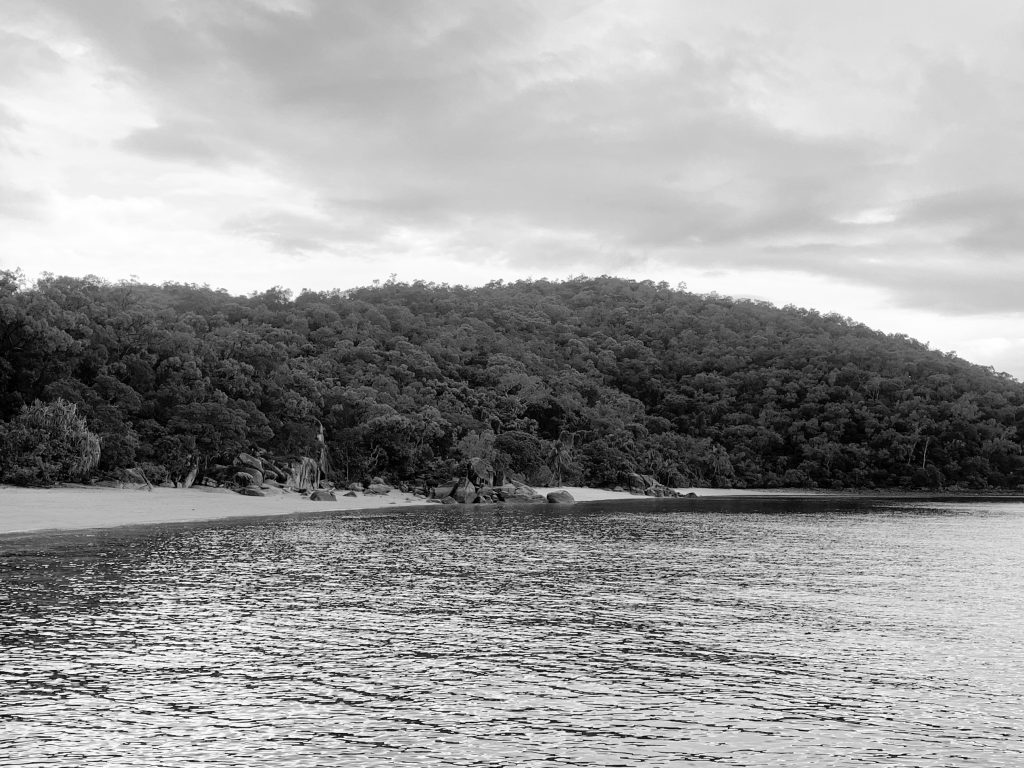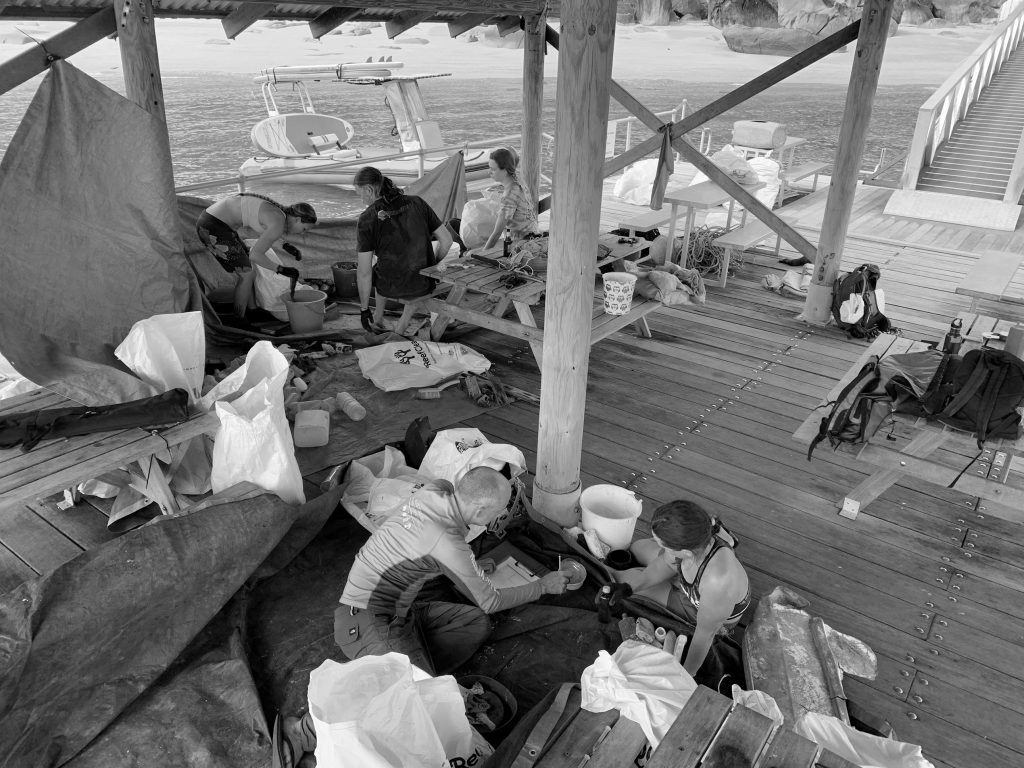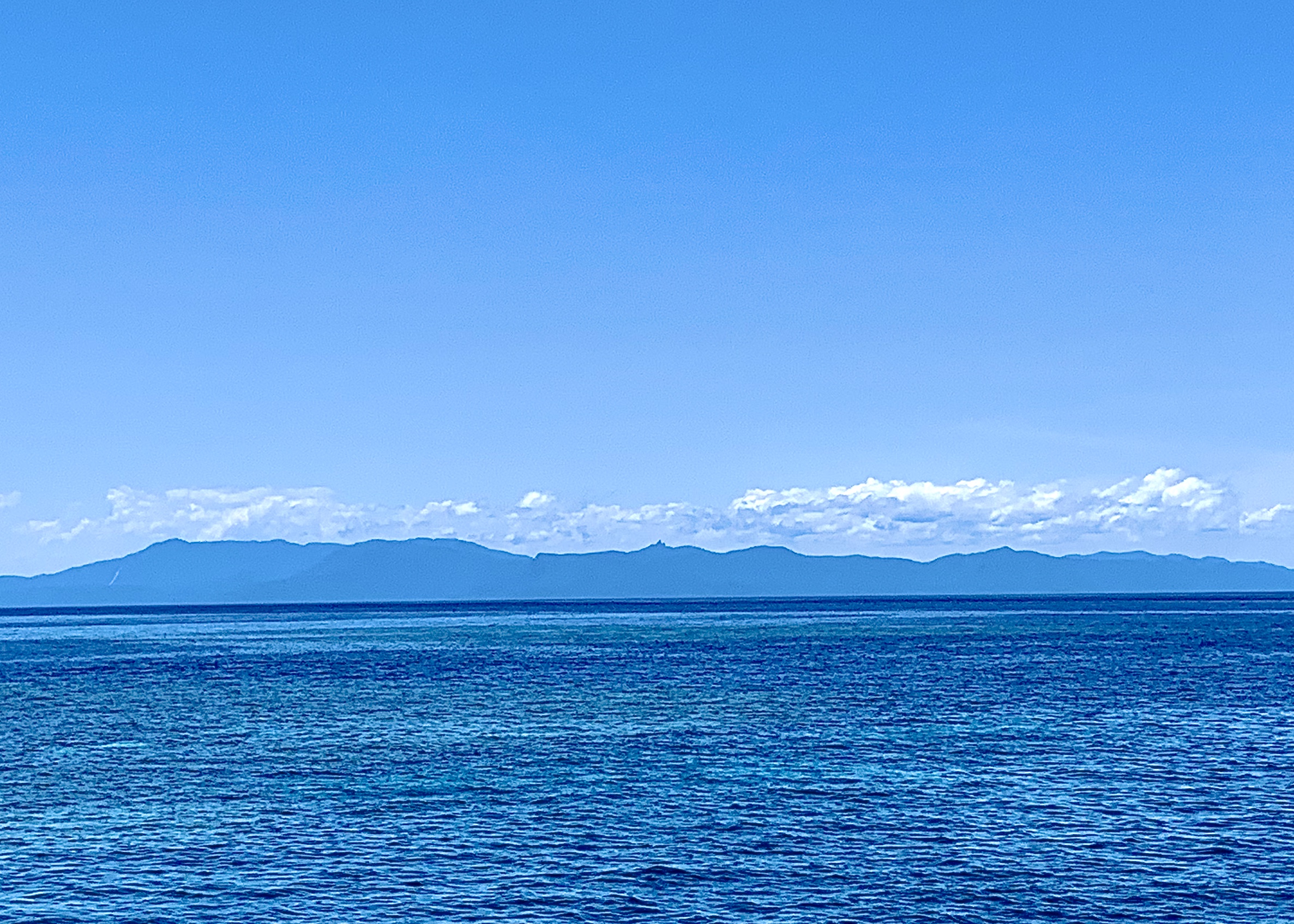Everyone plays a vital role in reducing ocean pollution even when on a fun outdoor adventure.
Just before the pandemic suspended tourism, I embarked on a beach clean up initiative out in the wilderness, in the secluded Orpheus Island National Park within the Great Barrier Reef World Heritage area.
For many years Tangaroa Blue, an Australian not-for-profit organization, has been carrying out volunteer-based clean-ups, offering practical and long term solutions in reducing ocean pollution. Once again, for this particular multi-day event, they provided planning, logistic, and equipment support.
Bretto, the experienced skipper of the vessel from Windswell Port Douglas, was in charge of the transportation to and from the mainland, and around Orpheus and neighboring islands.

Orpheus Island offers spectacular sheltered bays, fascinating geology, and impressive fringing reef. Coral rubble and white sand beaches surround lush tropical vegetation such as mangroves,palm trees, and pockets of rainforest that stretch right down to the water’s edge. We camped under the stars on one of the island’s beautiful beaches, on the western side of the islandnear Yanks Jetty. The shaded site offers only basic facilities with no running water, but it provides a great opportunity to reconnect with nature and appreciate its genuine beauty.
A way to comprehend the global issue at the source: the Australian Marine Debris Initiative Database
Part of the Tangaroa Blue team had previously been on Orpheus to explore the island during the day to target the next clean-up locations for the crew to tackle. They explained to me that most of the sites are covered with old and new rubbish washing in from national and international sources. The evidence found during and after the clean-up proved it.
Every day, after the collection out in the field, all the debris was taken back to Yanks Jetty to sort and record each item for the Australian Marine Debris Initiative Database that they established in 2004. This archive enables researchers to track items with the aim of solving this global issue at the source. Further effective actions include working with communities, industry, and government to address the problem and creating a source reduction plan. For example, after it had been discovered that strapping bands from the lobster industry had been significantly contributing to marine litter, they were banned throughout Western Australia.
Although looking at so much rubbish on the beach might instill frustration and dismay, sorting through it can be strangely cathartic. Fishing material, children’s toys, odd shoes, balloon bits, toothbrushes, tin cans, plastic bottles, various containers

Every piece of rubbish we rescued allows responsible disposal on the mainland by diverting as much from
Everyone’s effort matters.
The rubbish removal activity was like a good fitness workout: walking for a few hours under the blazing sun, disembarking and boarding the boat to access the sites as well as loading bulky bags and debris on board. However, this was balanced by relaxing snorkeling activities on rich and abundant reefs, which was definitely a treasured reward after work.
One day we ventured into the stunning shallow bay of Pelorus Island. After the intense beach clean-up activity, we enjoyed a memorable swim in crystal clear water above a magnificent underwater coral garden. The abundant variety of hard corals included large plates, big boulders, brain corals, and an array of exotic, colorful marine life of schooling fusiliers, angel, parrot, butterfly, and damsel fish.
After maybe one hour in the water floating with the gentle current

At
Anyone that cares about nature plays a vital role in its protection and conservation and can make a positive impact. Enjoyable adventures like mine on Orpheus show like-minded travelers can actually provide some benefit to local ecosystems, communities, and the economy.
Removing rubbish from the environment does not only restore the natural state of a place, but also contributes to mitigating the toxic effect of plastic degrading in the environment. Additionally, waste eradication reduces the risk to humans and animals due to interaction with the debris.
Saving Nature is Saving Ourselves.
This unsettling time (due to the COVID19 pandemic) has emphasized our vulnerability to global events and our relationship with the natural world. We can see these challenging days as a reminder that human well-being is intimately linked to the health of our planet whether it’s climate change, forest fires, or pandemics.
Taking a collective pause should be an opportunity to reflect and evolve to a new level of respect and appreciation for the environment and those individuals and businesses that prioritize responsible operations.
Making the difference when traveling and when back at home.
Eco-tourism could be one of the most critical sectors to drive changing attitudes towards environmental conservation.
Eco-tourism aims to maintain the sustainable use of natural and cultural resources. These are accessible to travelers, and they can provide an economic return to local communities.
Travelers choosing environmentally friendly tourism activities or taking on volunteer eco-tourism initiatives can enjoy a greater understanding and appreciation of the natural and cultural values of the place.
Local inhabitants can benefit from eco-tourism thanks to employment opportunities and enhanced livelihoods. Commercial operators can benefit from marketing opportunities in the eco-tourism sector. Other critical advantages include offsetting pressure from other, less sustainable activities that make use of the natural and cultural resources of an area. Governments have an essential role in fostering changes in sustainable tourism.
Moreover, eco-tourism promotes conservation of biodiversity, supports the well-being of local people, involves responsible actions on the part of the tourist and the tourism industry. The demand for visiting unspoilt destinations can actually benefit conservation efforts. Travelers’ choices about the place to visit, the transport used, the activities carried out, and how the money they spend is redistributed can make the difference. In many countries, protected areas rely heavily on tourism fees that also contribute directly to conservation.
So when planning the next wilderness adventure, one way to make it more sustainable is by making responsible travel choices. The alternatives go beyond only diverting environmental travel costs. By changing our attitudes and behaviors and delivering lasting benefits at our chosen destination, we can all reduce our overall impact.
But changes have to be also made back at home. By adopting the mantra “reduce, reuse, recycle”, we can all help address the global environmental problem. With a little more thought, we can altogether change our habits so that we throw out less garbage. Unity is strength when there is
